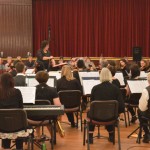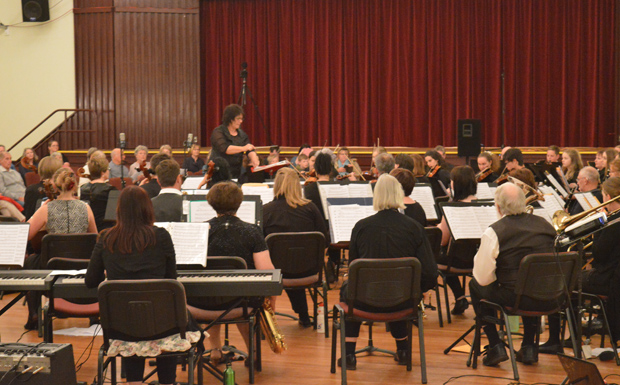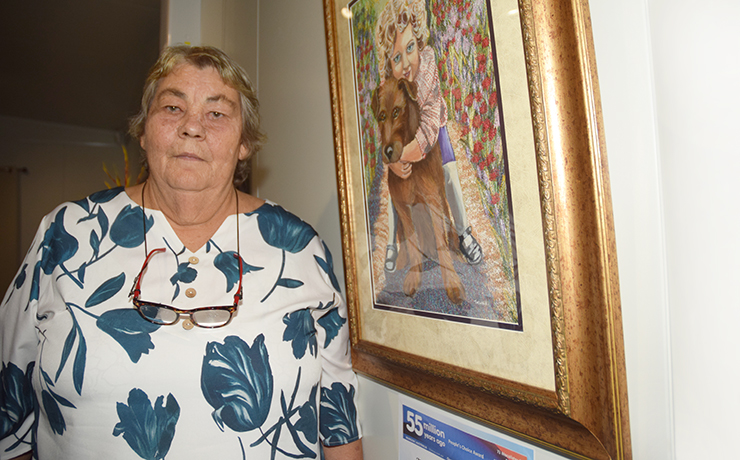May 10, 2013
Almost seven years ago, a 25-year-old woman lay motionless in the back seat of a car at Cherbourg while her frantic partner tried to get help for her at Cherbourg Hospital.
Hospital staff, unaware the woman was in the vehicle, feared for their safety as the man, Henry Gyemore, pounded on the front and back doors of the building, and then ripped a railing away from the wall.
Mis-identification of the man by the staff added to their fear, and an intercom at the hospital that may have aided communication was broken.
Instead of letting Mr Gyemore into the building, the hospital staff called Murgon Police.
When the police arrived, the situation was quickly defused and the young woman received medical attention however she could not be resuscitated.
The investigation into the circumstances surrounding the death of Maureen Ann Weazel at Cherbourg on July 8, 2006, reached its long drawn-out conclusion in the Kingaroy Courthouse today when retired magistrate Barry Barrett, acting as Coroner, handed down the results of an inquest.
Only two reporters and court staff were present to hear his findings in an otherwise empty court room.
Legal representatives, one representing the Aboriginal and Torres Strait Islander Legal Service and the other the Darling Downs and District Health Service, listened to the proceedings via telephone.
Mr Barrett noted that the Queensland Health Quality and Complaints Commission had launched an investigation into Ms Weazel’s death in 2006.
In 2007, Coroner S.T. Guttridge decided there was no need for an inquest. However, a month later the State Coroner Michael Barnes directed that an inquest was necessary.
Between then and 2010 pre-inquest conferences were held, and then three hearings to take evidence in 2011. The inquest was then adjourned to allow the preparation of an expert report by Professor Stephen Rashford, now medical director of the Queensland Ambulance Service. Copies of his report were distributed to parties in October 2012, and the last submission back from them was received by the Coroner in March this year.
Mr Barrett said he had been called upon to determine whether there had been an unreasonable denial of access to and treatment at Cherbourg Hospital, and whether any unreasonable denial of access to treatment had contributed to Ms Weazel’s death.
He said Ms Weazel had a family history of heart disease, was receiving treatment for diabetes, smoked, and on occasions consumed alcohol in excess quantities.
Just prior to her death she had attended Cherbourg Hospital complaining of chest pain.
On the night of her death, she had been attending a party. She left the party with Henry Gyemore and had driven to various spots around Cherbourg. The couple had consensual sex in the back seat of the vehicle.
Mr Gyemore had given evidence that at one point Ms Weazel had sat up and held her hands to her chest. However she had told him she was ok. He drove to another part of Cherbourg where he left the vehicle to get some water for her, but when he returned he found her grasping at her chest and making “snoring noises”. He immediately drove to Cherbourg Hospital.
The Coroner said CCTV footage depicted what had occurred when Mr Gyemore arrived at the hospital.
Mr Barrett found that it had been reasonable for the hospital staff to deny Mr Gyemore access until the police had arrived.
There had been a documented history at the hospital of verbal and other abuse being directed at staff by community members.
On top of this, there was the “ferocity” of his banging on the doors and the fact they could not see any injury on him.
A staff member had also initially misidentified Mr Gyemore as her partner and feared injury at his hands.
Mr Barrett said the inquest process required the cool scrutiny of evidence in the courtroom, away from the emotion-charged events of that night at Cherbourg.
He said the consumption of alcohol by Mr Gyemore that night meant he could not draw a conclusion based on Mr Gyemore’s evidence alone.
Mr Barrett rejected Mr Gyemore’s assertion that he had detected a pulse in Ms Weazel while at the hospital.
He accepted medical evidence that she had been dead for at least 30 to 120 minutes.
Mr Barrett ruled that there was no unreasonable denial of access and any treatment at the hospital would have been futile.
He said the earlier Queensland Health Quality and Complaints Commission report had been the catalyst for changes in security and access at Cherbourg Hospital and there would not be a repeat of the tragic events of that night.
- Download the full-text of the Coroner’s finding (65kb PDF)
- Download the 2007 Queensland Health Quality and Complaints Commission report (198kb PDF)























